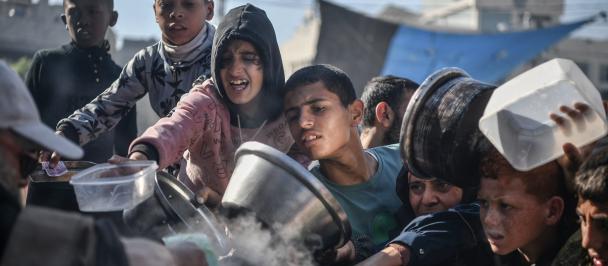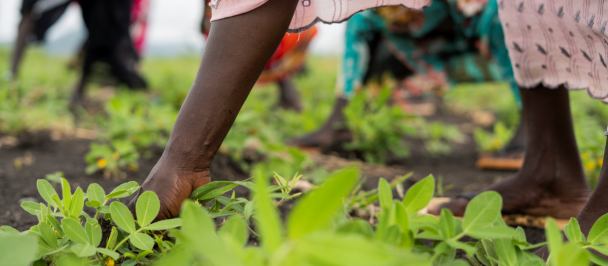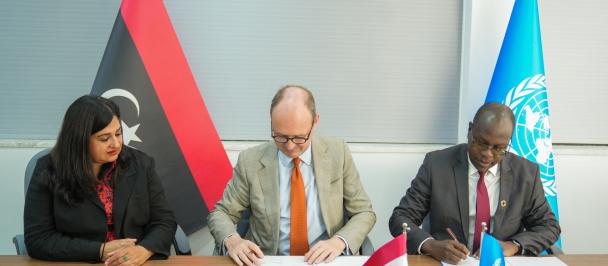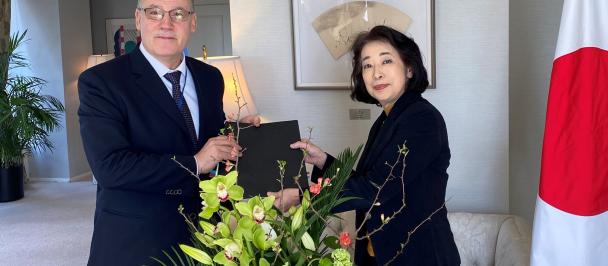Close to thirteen million people in dire need of basic assistance and services are being left behind due to dwindling funding to support them.
Syrian Refugees and host communities’ needs are growing with declining resources, warns the latest United Nations-led Regional Response Plan
March 6, 2024

Photo: UNDP Syria
Amman – As the Syria crisis enters its 14th year, the region faces an alarming situation where the needs of Syrian refugees and their host communities are growing while the funding to support them continues to decline. This is happening at a very delicate and volatile moment in the region. According to the 2024 Regional Strategic Overview of the Refugee and Resilience Plan (3RP), the main regional platform to support Syrian refugees and their host communities, the urgent needs of more than 6.1 million Syrian refugees and 6.8 million host community members are increasingly unmet.
In 2024, 3RP partners estimate that USD 4.9 billion is required to respond to the priority needs of vulnerable populations and institutions affected by the Syria crisis in Türkiye, Lebanon, Jordan, Egypt, and Iraq. The ability of national and local authorities in these countries to respond to the surging requirements is heavily curtailed as they face mounting challenges of inflation, higher food and fuel prices, currency devaluation and high unemployment especially among women and youth. This is aggravated by the ripple effects of the Gaza war and growing climate change pressures.
Funding trends over time are alarming, as the 3RP has gone from being over 60 percent funded on average (2015-2018) to 40 percent funded, on average, in 2020-2022. Last year, only 30 percent of the required funds were received. The decreasing levels of international funding for humanitarian assistance and development means that more people are being left out than are being supported.
“13 years on, and with no political solution on the horizon, refugees from Syria continue to be in real need of international protection and asylum,” stressed Ayman Gharaibeh, UNHCR Regional Director for the Middle East and North Africa. “With funding decreasing, millions of refugees and their hosts are plunging further into poverty and are exposed to multiple protection risks. The international community needs to stay the course by providing the required level of support and solutions to the most vulnerable. We must avert a situation where despair settles in.”
In Jordan, reduced funding jeopardizes services for the most vulnerable, notably female-headed households and people with special needs, risking further deterioration of living conditions and escalating tensions between refugees and host communities. Türkiye grapples with amplified vulnerabilities due to recent earthquakes and financial strain. Underfunding would leave 450,000 refugee children and youth without education. Health gaps, especially in immunization, pose threats to refugees, while 346,000 vulnerable households would lose food assistance.
The 3RP remains a critical mechanism for coordinating and delivering pressing humanitarian aid and development assistance. In 2024, partners continue to call for strengthening government efforts in the five host countries and expanding public service delivery systems to cope with the increasing needs of affected populations for quality basic services, including health, education, social protection, sanitation and waste management, and expanded economic opportunities.
“Our imperative is not only to save lives, but as the crisis lingers on, we must also help people maintain their sense of agency and hope for a better future,” said United Nations Assistant Secretary General, Dr. Abdallah Al Dardari, Regional Director of the Regional Bureau for Arab States at UNDP. “Our work must help to ensure that national and local institutions responsible for the delivery of basic services remain resilient – capable of coping with increasing needs and adapting to fast-changing contexts of operations; that communities do not suffer increasing social tensions due to competition over resources; and that households continue to be productive and self-reliant.”
In the first nine months of 2023 alone, and despite funding shortages, the collective efforts of 3RP partners led to the provision of protection services to 5.4 million people, food and cash assistance to some 566,000 individuals, helped 13,000 people secure employment and start businesses, and trained over 17,500 national public institution staff.
Note to editors
The 3RP, co-led by the United Nations Development Programme (UNDP) and the United Nations High Commissioner for Refugees (UNHCR), has been at the forefront of the international response to help host governments manage the consequences and impact of the Syria crisis on refugees from Syria and host communities. The 3RP is a strategic platform for coordination, planning, fundraising and advocacy for over 270 humanitarian and development partners, including UN agencies, international donors, international financing institutions, international and local civil society organizations, and private sector companies.
Contact Information
In Amman: Rula Amin, Senior Communication Advisor and Spokesperson, UNHCR Regional Bureau for Middle East and North Africa, +962 (0)790045849, aminr@unhcr.org
In Amman: Fatma Elzahraa Yassin, Regional Communication Advisor a.i., Bureau for External Relations & Advocacy, UNDP Regional Bureau for Arab States, fatma.yassin@undp.org

 Locations
Locations


